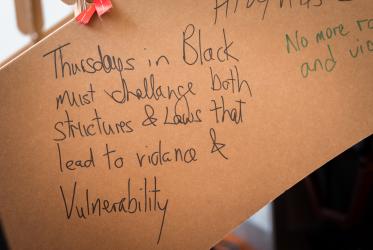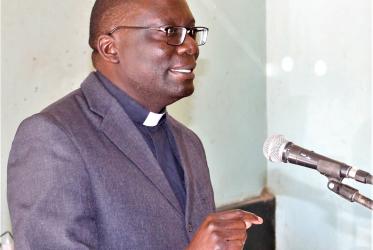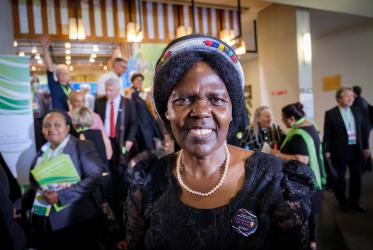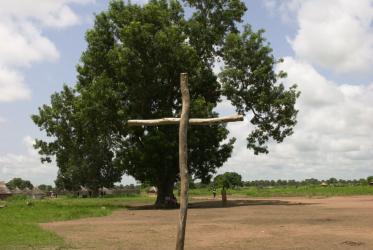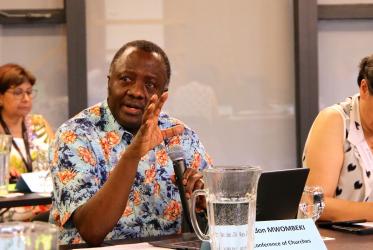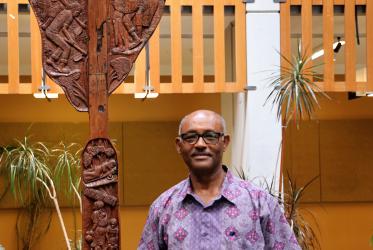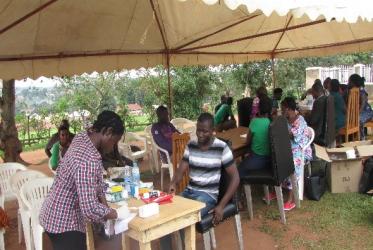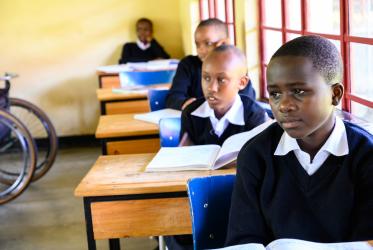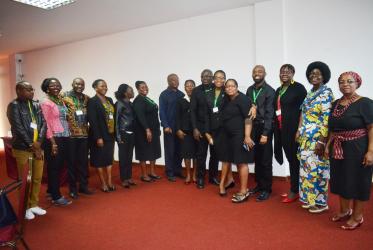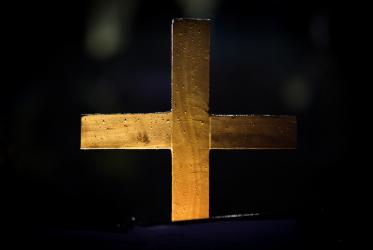Displaying 121 - 140 of 368
19 September 2019
Kenya schools invest in young people to end new HIV infections
18 September 2019
When you strike the women, you strike a rock
18 September 2019
Moravian Church in Tanzania launches Thursdays in Black
10 September 2019
Council of Churches in Zambia: “Involve the people in the process”
09 September 2019
Erhard Hermansen: “The church in South Sudan needs our prayers"
09 September 2019
Dr Agnes Abuom: “Enough is enough”
05 September 2019
Regional forum in Nigeria centers on banning nuclear weapons
04 September 2019
South Sudan Council of Churches Assembly issues resolutions
02 September 2019
Former WCC executive finds joy working for peace in Ethiopia
06 August 2019
Mission and people with disabilities
26 June 2019


